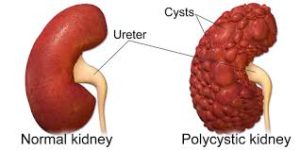Polycystic Kidney Disease (PKD) is a genetic disorder characterized by the growth of numerous cysts in the kidneys. Over time, these cysts can impair kidney function and lead to chronic kidney disease or even kidney failure. While there is Cure for Polycystic Kidney Disease, managing the condition through diet and lifestyle can significantly improve quality of life and slow the progression of the disease. The best foods for individuals with PKD and how they contribute to kidney health.
Understanding PKD and Nutritional Needs
PKD affects the kidneys by reducing their ability to filter waste and regulate essential minerals and fluids in the body. As the cysts grow, they can cause pain, high blood pressure, and other complications. Therefore, adopting a kidney-friendly diet is crucial for individuals with Polycystic Kidney Disease. Key dietary goals include:
- Reducing kidney workload: Opting for foods that are easy for the kidneys to process.
- Minimizing cyst growth: Choosing anti-inflammatory and nutrient-dense foods.
- Managing blood pressure: Incorporating foods that support cardiovascular health.

Foods That Are Good for Polycystic Kidney Disease
1. Low-Sodium Foods
High sodium intake can worsen high blood pressure, a common issue for those with PKD. Reducing sodium helps protect kidney function and supports overall cardiovascular health.
- Examples: Fresh vegetables, fruits, unsalted nuts, and herbs.
- Tips: Avoid processed foods like canned soups, frozen meals, and snack foods. Replace salt with natural seasonings such as garlic, lemon juice, and herbs like basil and thyme.
2. High-Potassium Foods (When Approved by Your Doctor)
Potassium helps regulate blood pressure, but its intake should be monitored based on kidney function. For individuals with normal potassium levels, incorporating potassium-rich foods can be beneficial.
- Examples: Bananas, oranges, potatoes, spinach, and avocados.
- Caution: If kidney function declines, high potassium levels can be dangerous. Always consult with a healthcare provider.
3. Plant-Based Proteins
Diets high in animal protein can strain the kidneys. Switching to plant-based proteins can reduce this burden while providing essential nutrients.
- Examples: Lentils, beans, tofu, quinoa, and chickpeas.
- Benefits: These foods are lower in phosphorus and easier for the kidneys to process compared to animal proteins.
4. Foods Rich in Omega-3 Fatty Acids
Omega-3 fatty acids have anti-inflammatory properties that may help reduce cyst-related inflammation in Polycystic Kidney Disease. They also support heart health.
- Sources: Fatty fish (like salmon, mackerel, and sardines), flaxseeds, chia seeds, and walnuts.
- Incorporation: Add flaxseeds to smoothies or sprinkle walnuts on salads for a healthy boost.
5. Calcium and Phosphorus Management
Balancing calcium and phosphorus levels is essential for maintaining bone health and preventing complications in PKD.
- Recommended Foods: Kale, broccoli, fortified plant-based milk, and almonds.
- Avoid: Processed foods with added phosphorus, such as cola drinks and packaged snacks.
6. Hydration Through Proper Fluids
Staying hydrated is vital for kidney health, as it helps flush out toxins and may reduce cyst formation. However, over hydration can strain the kidneys.
- Best Option: Water.
- Avoid: Sugary drinks, sodas, and excessive caffeine.
7. Antioxidant-Rich Foods
Antioxidants protect the body from oxidative stress, which can damage kidney cells and exacerbate Polycystic Kidney Disease symptoms.
- Examples: Blueberries, strawberries, dark leafy greens, carrots, and bell peppers.
- Tips: Create antioxidant-rich smoothies or add berries to oatmeal for a nutritious start to your day.
8. Low-Oxalate Foods
Oxalates can contribute to kidney stone formation, a complication sometimes seen in Polycystic Kidney Disease. Choosing low-oxalate foods can help prevent this issue.
- Recommended Foods: Cauliflower, apples, cherries, and zucchini.
- Cooking Tip: Boiling vegetables can reduce their oxalate content.
9. Whole Grains and Fiber-Rich Foods
Fiber aids digestion and helps regulate blood sugar levels, which is important for overall kidney health.
- Examples: Oatmeal, brown rice, whole-grain bread, and barley.
- Moderation: For individuals with advanced PKD, monitor portions to avoid excessive phosphorus intake.
10. Herbs and Natural Seasonings
Using herbs and spices instead of salt can enhance the flavor of meals without increasing sodium intake.
- Options: Cilantro, parsley, turmeric, and rosemary.
- Tip: Experiment with spice blends to make meals enjoyable and kidney-friendly.
Foods to Avoid with Polycystic Kidney Disease
While certain foods support kidney health, others can worsen Polycystic Kidney Disease symptoms or accelerate kidney damage. Avoid:
- Processed and Packaged Foods: High in sodium and phosphorus additives.
- Excessive Animal Protein: Particularly red meat, which increases the kidney’s workload.
- Sugary Beverages and Snacks: These can lead to weight gain and insulin resistance, both of which can impact kidney health.
- High-Oxalate Foods: Such as spinach, rhubarb, and almonds, which can promote kidney stone formation.
Sample Meal Plan for Polycystic Kidney Disease
Here’s a simple meal plan that incorporates the recommended foods for Polycystic Kidney Disease:
Breakfast
- Oatmeal topped with blueberries, chia seeds, and a splash of almond milk.
- Herbal tea or water.
Lunch
- Spinach and quinoa salad with grilled salmon (or tofu for a plant-based option).
- A slice of whole-grain bread.
- A small serving of avocado.
Snack
- Apple slices with almond butter.
- A handful of walnuts.
Dinner
- Steamed vegetables (cauliflower, zucchini, and carrots) with lentils and brown rice.
- A side of kale salad with a lemon and olive oil dressing.
Dessert
- A small bowl of mixed berries.
Conclusion
Managing Polycystic Kidney Disease through diet is a powerful way to slow its progression and improve overall well-being. By focusing on low-sodium, nutrient-rich foods and avoiding those that strain the kidneys, individuals with Polycystic Kidney Disease can take significant steps toward better health. It is essential to consult with a healthcare provider or dietitian to tailor dietary choices to your specific needs and kidney function.
A balanced and kidney-friendly diet, combined with proper hydration and a healthy lifestyle, can help you live well with Polycystic Kidney Disease and protect your kidney health for years to come.





